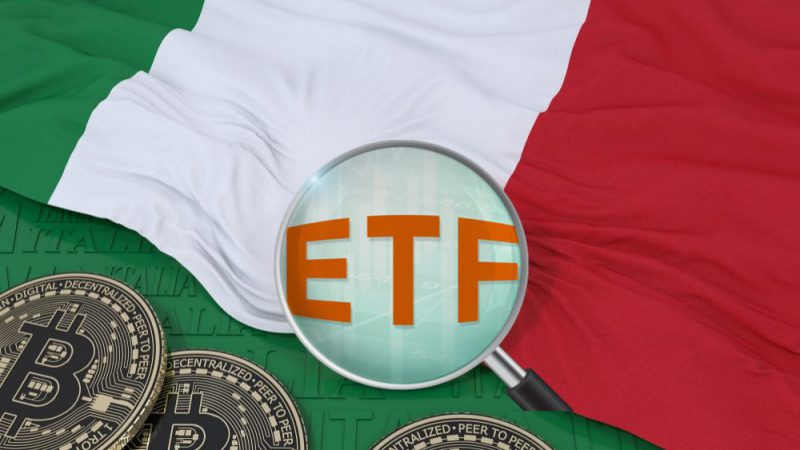Melanion Capital’s “Bitcoin (BTC)-thematic” exchange-traded fund (ETF) was launched on the Italian Stock Exchange, Borsa Italiana, this morning, offering Bitcoin to Italian institutions, including retirement plans.
In an interview with Cointelegraph, Cyril Sabbagh, Managing Director at Melanion Capital, said,
“The Italian Stock Exchange (Borsa Italiana) has not accepted any ‘spot ETFs’ but welcomes our thematic ETF.”
Melanion BTC Equities Universe UCITS ETF is a crypto-focused equities exchange-traded fund. According to Sabbagh, the ETF would be open to as many individuals as feasible.
Melanion Capital picked Italy for its ETF after a successful launch of a Bitcoin-thematic ETF on Euronext Paris, a Pan-European stock market, in October 2021. Spot ETFs (exchange-traded funds) in Europe are ETNs (exchange-traded notes) or ETCs (exchange-traded certificates), which include counterparty risk and are not UCITS, the highest regulatory requirement in Europe for a fund.
Because of the UCTIS standard, the Bitcoin ETF also allows investors to include Bitcoin in their retirement plans.
Nicolas Bertrand, a former board member of Borsa Italiana and adviser and ambassador for the Global Blockchain Business Council, told Cointelegraph,
“Italian investors and traders showed early interest in trading Bitcoin and other digital assets.”
Despite the slow market action and projections for a Bitcoin (BTC) price of under $20,000, Bertrand emphasizes the interest in digital assets. He admits that there is a lot of interest and that a lot of firms are preparing to embrace digital assets.
The Bitcoin desire is strong among investors in Italy, according to Bertrand, especially before 2021. He says,
“Italy was in the top 10 globally in terms of volume of activity on Bitcoin and a number of trading venues have emerged offering direct access to these markets.”
Additionally, a recent survey conducted by the European Central Bank found that the number of investors in digital assets was growing in the Eurozone. According to the findings, while the wealthiest families are the most likely to own crypto assets, lower-income households are not far behind.





